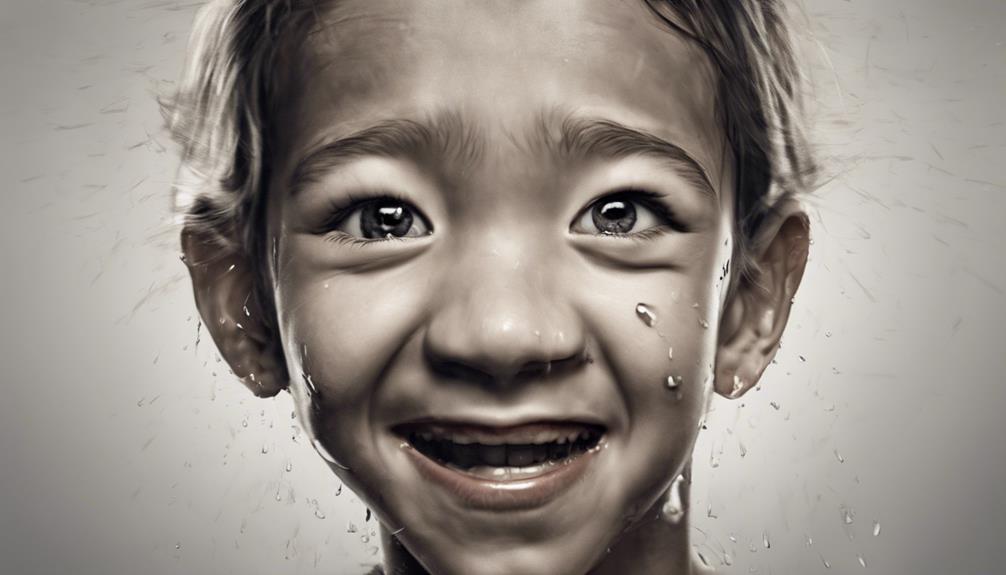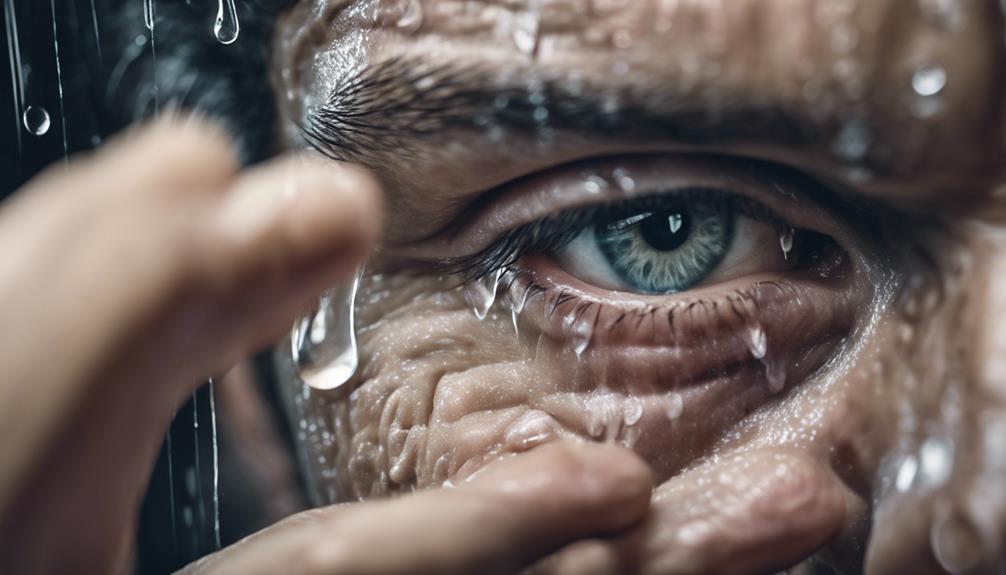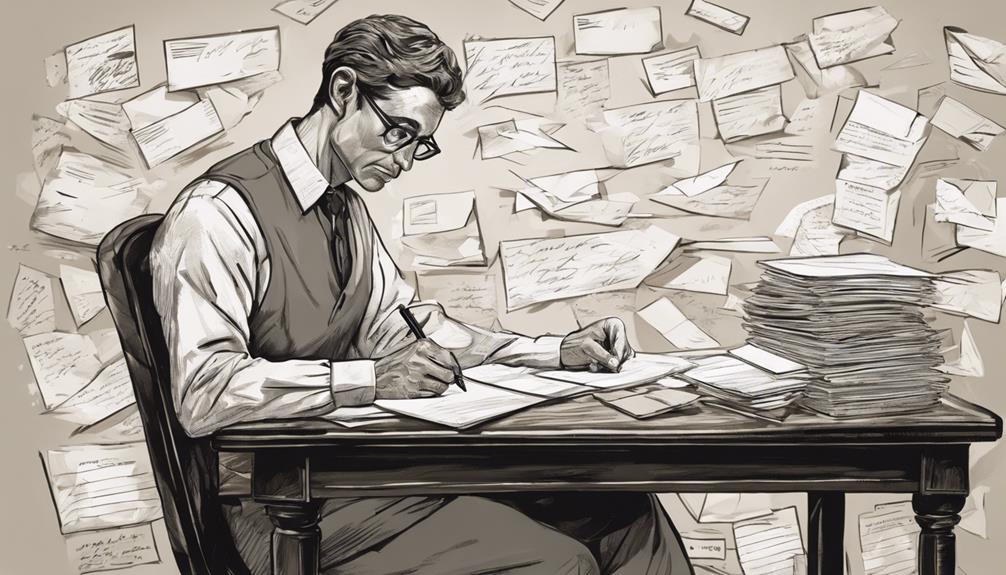As we unravel the complexities of narcissistic behavior, one intriguing aspect that may surprise you is the manipulation tactics involving tears.
The facade of vulnerability and emotional displays by narcissists often serve as a powerful tool for control, leaving those around them perplexed by the true intentions behind the tears shed.
By examining the calculated responses and deceptive nature of their emotional outbursts, we gain insight into the intricate web of manipulation woven by these individuals.
Stay tuned as we uncover the subtle yet impactful ways narcissists utilize tears to further their agenda and maintain dominance in their relationships.
Key Takeaways
- Narcissists exploit tears by invalidating, criticizing, and controlling emotional displays.
- Deceptive apologies and fake empathy are tools to maintain power and influence.
- Laughing at vulnerability showcases lack of empathy and aims to manipulate emotions.
- Discouraging emotional expression helps narcissists assert dominance, exploit vulnerability, and manipulate situations.
Narcissists' Response to Tears
When faced with tears, narcissists often exhibit a range of manipulative reactions that aim to undermine and control the emotional state of the individual in distress. They may pretend not to notice the tears, offer insincere apologies, laugh at the emotional display, criticize for being emotional, or even instruct not to cry. Narcissists may use comforting gestures to later manipulate vulnerabilities, making the tears about themselves and creating discomfort.
Their lack of empathy leads them to focus on their needs, projecting their own discomfort onto others. Through strategic manipulation, they aim to control emotions, turning the spotlight on themselves and exploiting vulnerability for personal gain. Understanding their tactics can help individuals navigate these challenging interactions with narcissists.
Deceptive Apologies and Reactions
Narcissists' deceptive apologies and reactions serve as calculated tools to further their manipulative agenda, exploiting vulnerabilities and controlling the emotional narrative to their advantage.
- They offer insincere apologies to manipulate your emotions.
- Their reactions are carefully crafted to maintain control over the situation.
- Narcissists use fake displays of empathy to deceive and manipulate others.
- The goal is to make you doubt your feelings and reality, allowing them to maintain power and influence.
Laughing at Emotional Vulnerability
Laughing at emotional vulnerability showcases the callous disregard narcissists have for genuine human emotions. When we bare our vulnerabilities and show our emotional side, it's a moment of trust and authenticity.
However, narcissists see this as an opportunity for mockery and manipulation. Their laughter in the face of emotional displays reveals their lack of empathy and their inclination to exploit others' feelings for their benefit. It's a cruel tactic meant to diminish the validity of our emotions and make us doubt the sincerity of our own feelings.
Criticism of Emotional Displays

Moving from the aspect of laughing at emotional vulnerability, the criticism of emotional displays by narcissists unveils a deeper layer of their manipulative tactics and lack of empathy.
- Invalidation: Narcissists often criticize emotional displays to invalidate your feelings and make you doubt yourself.
- Control: Criticizing emotional expression allows narcissists to maintain control over the situation and manipulate your reactions.
- Projection: By criticizing your emotions, narcissists project their own discomfort onto you, avoiding dealing with their own feelings.
- Gaslighting: Criticism of emotional displays can be used as a form of gaslighting, making you question the validity of your emotions and experiences.
Discouraging Emotional Expression
Discouraging emotional expression can be a key tactic employed by manipulative individuals to maintain power and control over those around them. By discouraging others from expressing their emotions openly, manipulators create an environment where vulnerability is seen as a weakness.
They may belittle or criticize emotional displays, making individuals feel ashamed or embarrassed for showing their feelings. This tactic can lead to a sense of isolation and self-doubt, making it easier for manipulators to assert dominance and influence over their targets.
Additionally, by discouraging emotional expression, manipulative individuals can prevent others from seeking support or validation from outside sources, further solidifying their hold on those they seek to control.
Exploiting Vulnerability for Gain

By stifling emotional expression, manipulative individuals pave the way for exploiting vulnerability as a means to achieve personal gain. When they detect emotional openness, they see an opportunity to manipulate. Here's how they may exploit vulnerability for their benefit:
- Feigning Empathy: Offering false sympathy to gain trust.
- Playing the Savior: Providing support only to later demand favors.
- Shifting Blame: Using tears to deflect responsibility onto others.
- Leveraging Confessions: Encouraging oversharing for later manipulation.
Recognizing these manipulation tactics can help protect against being taken advantage of emotionally. Understanding the motives behind such exploitations can empower individuals to set boundaries and safeguard their emotional well-being.
Understanding Tears for Manipulation

Understanding tears as a tool for manipulation sheds light on the intricate ways narcissists exploit emotions for their own advantage. When a narcissist witnesses tears, they often see an opportunity to exert control or gain sympathy.
By feigning concern or offering false comfort, they aim to manipulate the situation to suit their needs. These tears, genuine or not, become a tool in the narcissist's arsenal of manipulation tactics.
They may use tears to deflect blame, elicit guilt, or maintain power dynamics within relationships. Recognizing tears as a potential manipulation tactic can help individuals navigate interactions with narcissists more effectively, understanding the underlying motives behind these emotional displays.
Lack of Empathy Towards Tears

Moving from the exploration of tears as a manipulation tool, we now examine how narcissists lack empathy towards emotional displays.
- Focus on Themselves: Narcissists prioritize their needs and ego over understanding and empathizing with others' emotions.
- Amusement Over Empathy: They often find emotional displays amusing rather than feeling compassion towards the person expressing emotions.
- Criticism Instead of Comfort: Discomfort around emotions leads narcissists to criticize rather than offer genuine comfort or support.
- Projection of Discomfort: Unable to cope with their own emotional discomfort, narcissists project this discomfort onto others, diminishing empathy towards tears.
Emotional Manipulation Tactics

Employing cunning tactics, narcissists manipulate emotions to serve their own agenda, preying on vulnerabilities for personal gain. They strategically use words to cultivate false trust, aiming to control emotions and exploit vulnerabilities for their benefit.
By offering comfort, they create a sense of indebtedness in their targets, turning emotional support into a tool for manipulation. Narcissists divert attention to themselves, making the distressed individual feel obligated to apologize or cater to their needs.
This emotional manipulation is a calculated move to assert dominance and secure their position of power over others. It's essential to recognize these tactics and set boundaries to protect oneself from falling prey to their manipulative behavior.
Frequently Asked Questions
Can Narcissists Ever Genuinely Empathize With Someone Who Is Crying?
We've observed that narcissists struggle to genuinely empathize with someone who's crying. Their focus on self often clouds their ability to connect with others' emotions.
While they may understand the concept of crying, empathy typically takes a back seat to their own needs and ego. This lack of genuine empathy can lead to manipulative behavior as they prioritize control and personal gain over authentic emotional support.
How Do Narcissists Justify Their Laughter at Someone's Emotional Vulnerability?
When narcissists justify their laughter at emotional vulnerability, they often deflect their discomfort onto the person showing emotions. By ridiculing vulnerability, they maintain a facade of control and power. This behavior serves to reinforce their superiority and diminish the other person's feelings.
Laughing at emotional displays allows them to avoid addressing genuine connections and further perpetuates their manipulative tendencies.
Do Narcissists Ever Feel Guilt or Remorse for Exploiting Someone's Tears for Personal Gain?
We've observed that narcissists rarely feel guilt or remorse for exploiting someone's tears for personal gain. Their focus is on their own needs and ego, often finding emotional displays amusing.
This discomfort around emotions can lead to criticism and projection of their own discomfort onto others.
The lack of empathy allows them to manipulate emotions strategically, turning the spotlight on themselves and exploiting vulnerabilities for their own benefit.
What Techniques Do Narcissists Use to Make Someone Feel Like They Owe Them an Apology for Crying?
When making someone feel like they owe them an apology for crying, narcissists often employ tactics that manipulate emotions. They might twist the situation to shift blame onto the crying individual, using strategic language to create a sense of indebtedness.
How Do Narcissists Manipulate Emotional Vulnerability to Establish Control Over a Person's Emotions?
When manipulating emotional vulnerability, narcissists exploit insecurities to gain control over our emotions. They prey on our need for validation, using calculated words and actions to foster a false sense of trust.
Conclusion
In the intricate dance of emotional manipulation, narcissists wield tears as their weapon of choice, using them to control and exploit those around them.
With deceptive apologies, criticism of vulnerability, and a lack of empathy towards tears, they master the art of manipulation.
Through their calculated tactics, they prey on emotional displays to further their own agendas.
In the end, tears become nothing more than tools in the hands of narcissists, used to maintain their power and dominance.










